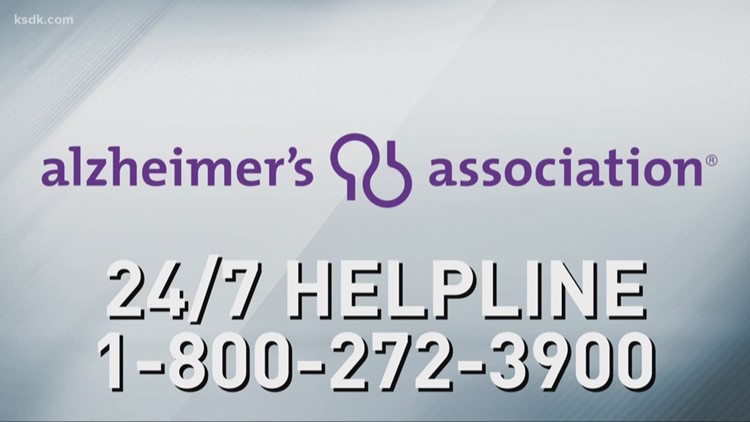ST. LOUIS — New scientific research from the Alzheimer's Association shows an association between COVID-19 infections in older people and persistent problems with memory and the brain.
COVID-19 patients with a persistent loss of smell appeared to be more likely to experience problems including persistent forgetfulness. Others experienced an acceleration of symptoms related to Alzheimer’s disease, or Alzheimer's-related brain changes after a COVID-19 infection.
New data out of Argentina looked at 300 older adults who had COVID-19.
More than half had persistent problems with forgetfulness, and 25% had additional problems with cognition or thinking.
The new research was reported at the Alzheimer’s Association International Conference® (AAIC®) 2021, held virtually and in Denver, Colorado.
Scientific leaders from the Alzheimer’s Association and representatives from nearly 40 countries make up the international, multidisciplinary consortium. It collects data and evaluates the long-term consequences of COVID-19 on the central nervous system. It’s also looking at the differences across countries.
Initial findings from this consortium presented at AAIC 2021 from Greece and Argentina suggest older adults frequently suffer persistent cognitive impairment, including persistent lack of smell after recovery from SARS-CoV-2 infection, also known as COVID-19.
Scientists also found COVID-19 infections were associated with an uptick in biomarkers for Alzheimer’s disease in the blood.
"The research shows the virus doesn't cause Alzheimer's,” said Stacy Tew-Lovasz, President of the Alzheimer's Association Greater Missouri Chapter, “but there's an association between them. So, it's more of, if you already have Alzheimer's disease, it exacerbates the condition."
Again, if you've had COVID-19, it doesn't mean you're going to get dementia.
But if you are having long-term symptoms including cognitive difficulty, talk with your doctor.
Support can also be found on the website of the Alzheimer's Association Greater Missouri Chapter.
You can also contact the Alzheimer's Association at the 24-7 helpline at 800-272-3900 for any questions or resources regarding cognition and brain health.



